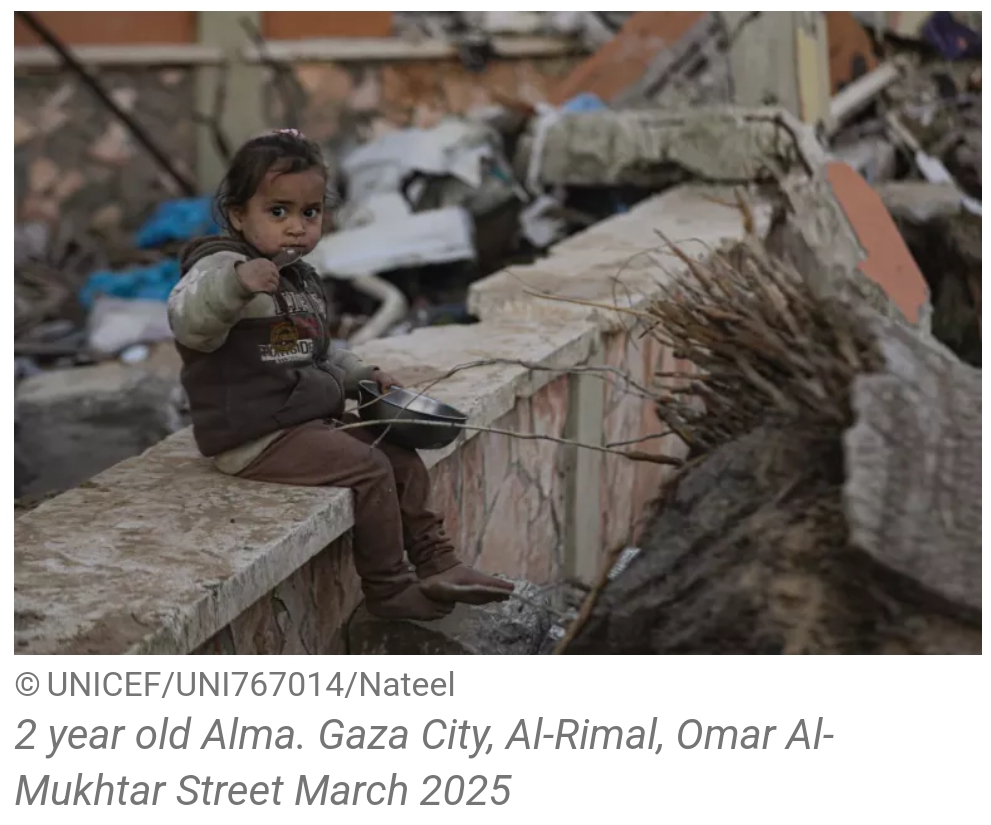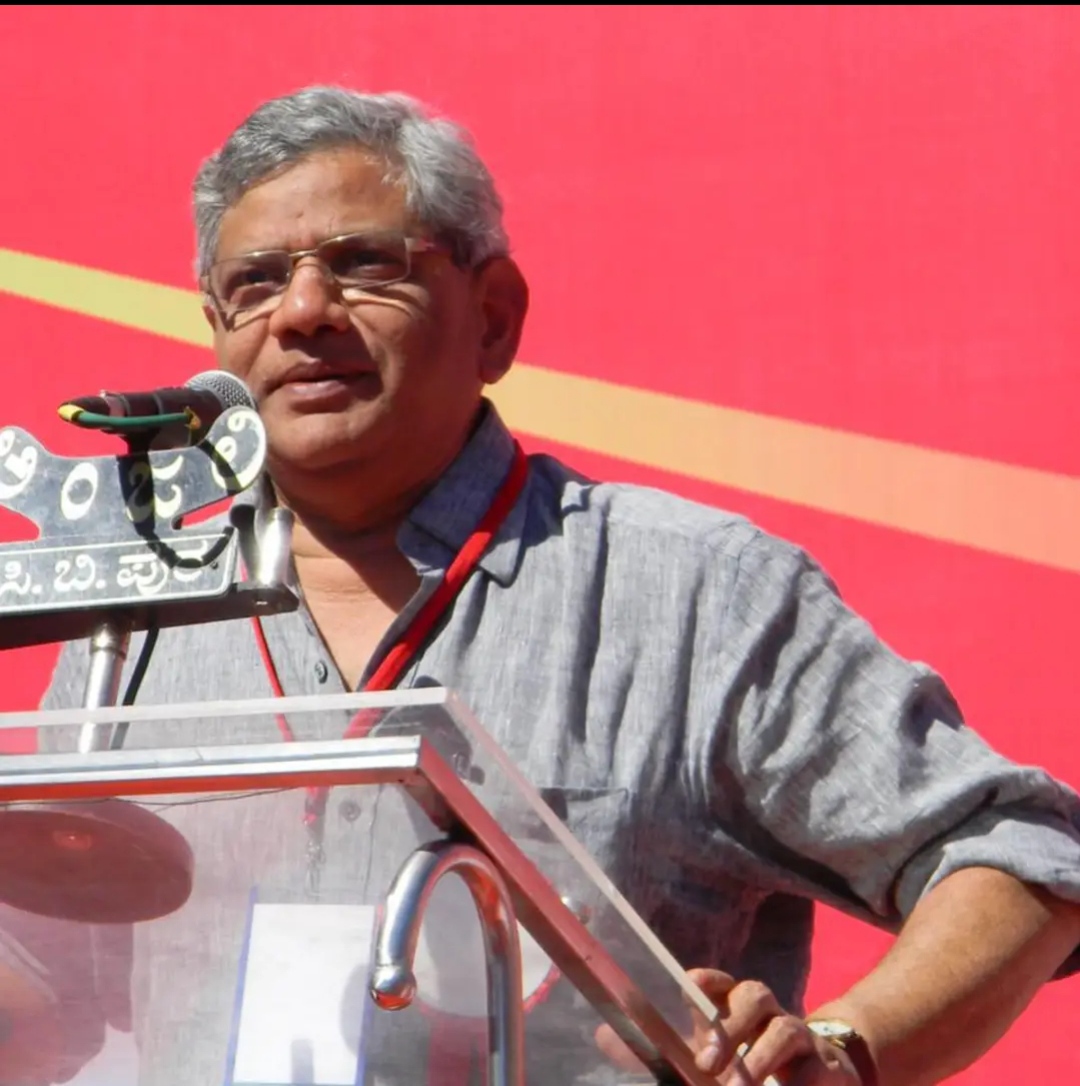Over One Million Children in Gaza Deprived of Lifesaving Aid for Over a Month, Warns UNICEF.
Amman, Jordan:
UNICEF has issued a stark warning as humanitarian aid remains blocked from entering the Gaza Strip for more than a month, in what has become the longest aid suspension since the beginning of the conflict. Over one million children are now facing severe shortages of food, clean water, shelter, and medical supplies, placing their lives at critical risk.
Since March 2, 2025, no humanitarian aid has been permitted into Gaza. The prolonged blockade, according to UNICEF, constitutes a grave breach of international humanitarian law and is already having devastating repercussions on the most vulnerable population—children.
“UNICEF has thousands of pallets of lifesaving supplies ready and waiting at the border,” said Edouard Beigbeder, UNICEF Regional Director for the Middle East and North Africa. “Instead of reaching children in desperate need, this aid is stuck in storage. This is not about charity—it’s about legal and moral responsibility.”
The crisis is escalating rapidly. Malnutrition is on the rise as complementary food for infants has completely run out in central and southern Gaza. Currently, only enough infant formula remains to support 400 children for a single month, while nearly 10,000 infants under six months urgently require supplementary feeding. The scarcity of clean water exacerbates the danger, especially if families are forced to use unsafe water to prepare substitutes.
Healthcare infrastructure has also been hit hard. Twenty-one outpatient malnutrition treatment centres have shut down since mid-March due to airstrikes and forced displacement, leaving 350 malnourished children without access to lifesaving services.
Water scarcity is becoming catastrophic. In the north, families are now entirely dependent on water trucking. In the south, power outages have slashed water production at Gaza’s primary desalination plant by 85 percent, while damage to the main water pipeline remains unrepaired due to the ongoing conflict. Access to drinking water has dropped from 16 litres to just six litres per person per day. UNICEF warns that if fuel runs out, this could fall below four litres, increasing the risk of disease outbreaks among children.
UNICEF has also been forced to reduce essential child protection services, including mental health and psychosocial support, mine education, and recreational services for children with disabilities. Kits meant for at least 1,000 children with disabilities have been blocked from delivery.
Despite the dire conditions, UNICEF continues to operate inside Gaza, providing critical aid wherever possible. This includes the resumption of neonatal care in northern Gaza, where 21 respiratory machines have been delivered to help save the lives of 150 newborns. More than 7,800 children under the age of two have received Ready to Use Complementary Food (RUCF), and over 33,500 children have been screened for acute malnutrition. In addition, over 300 children separated from their families due to bombardments and displacement have been reunited with their loved ones.
UNICEF is urging the Israeli authorities to immediately allow humanitarian aid and commercial goods into Gaza, uphold their obligations under international humanitarian law, and ensure that civilians—especially children—have access to the basic necessities for survival.
“The children of Gaza cannot wait any longer,” Beigbeder said. “We call on all parties to cease hostilities, reinstate the ceasefire, and allow safe and unimpeded humanitarian access. The world must not look away.”
UNICEF also calls on nations with influence to use their leverage to bring an end to the conflict, ensure protection for civilians, and press for the immediate release of all hostages.




